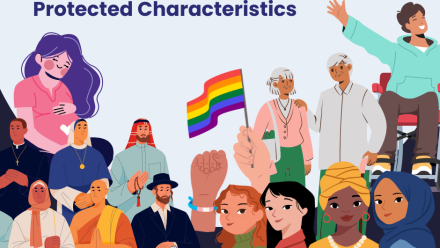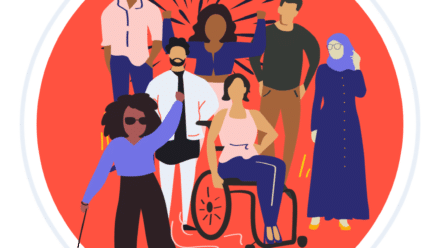Dismantling barriers to education in Tonga with D&A International
13th September 2022 by Raphaele von Koettlitz
As we reach the culmination of our first disability inclusion course in Tonga, International Projects Coordinator Ruksar Hussain highlights the barriers faced by disabled learners in Tonga and how D&A International is working with Tongan organisations to dismantle those barriers.
What was the challenge?
Tonga’s 2018 Disability Survey demonstrated vast discrepancies between the experience of disabled learners and their non-disabled counterparts. Disabled adults had a lower level of education than the non-disabled population, and 61.2% of disabled people withdrew from education (compared to 30.4% of the non-disabled population).
Disabled people shared the main reasons for withdrawing from education, many of which included the attitudinal barriers they faced at the hands of their families, peers and education providers, including a lack of support provisions by educational bodies. It highlights the need for a refreshed perspective on disability and an enhanced understanding of inclusive education, and that’s where we come in.

What did we do?
Between June 2021 and January 2022, we delivered our two-course programme in Tonga: Introduction to Assistive Technology and Introduction to Disability Needs Assessments. Both were delivered in partnership with the Ministry of Education in Tonga (MOE) and the Commonwealth of Learning (COL).
35 learners took part in the course. Learners came from 10 different organisations, including units within the MOE and educational institutions that support disabled students, including the Inclusive Education Unit, Tonga Red Cross, and Ma’a Fafine mo e Famili.
What were the highlights?
33 learners passed the Introduction to Assistive Technology course, with a further nine (and counting!) going on to complete the Introduction to Disability Needs Assessment course! The learners clearly benefited from the unique dynamic of a mixed asynchronous and synchronous E-learning course. It was especially interesting to see the cohort of learners use the E-learning forum to provide and receive peer support and share the exciting discoveries they made about how assistive technology could enhance their own daily lives.
The course had an overwhelmingly positive impact on learners’ knowledge and confidence.
Participants increased in their confidence identifying the assistive technologies that could support individuals to overcome specific barriers (100% of respondent learners reported feeling confident or very confident after the course, compared to 60% before the course). They also increased their level of knowledge on disability needs assessments; 100% of respondents reported an excellent or good level of knowledge after the course (compared to 23% before the course).
“Before the course, I assumed it would equip me with the skills I might need to work with disabled children or adults.” Says Soana Kaitapu from Tonga Ministry of Education (Early Childhood Education Unit).
“What I’ve found is that as each week passes, I’ve discovered technologies that are helpful to me, too! They’ve made my work a lot easier; without them, work- and consequently, life- is more challenging.”


